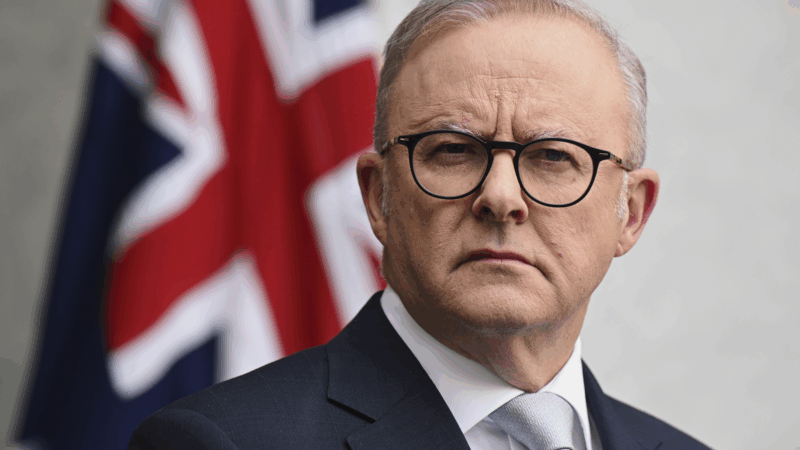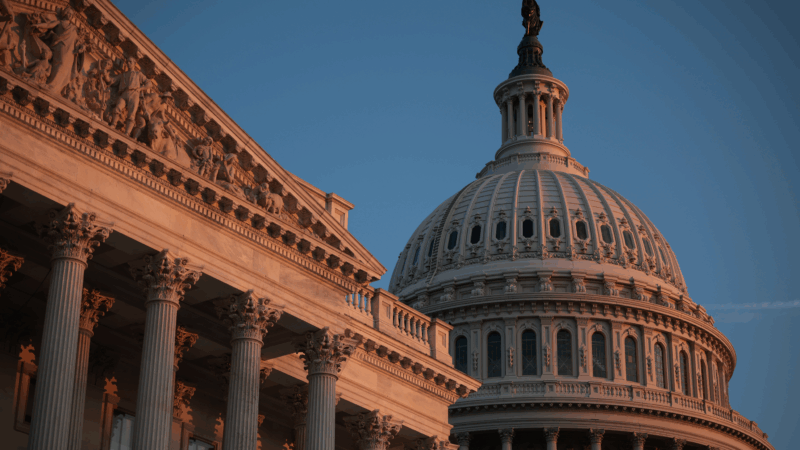Australia accuses Iran of organizing antisemitic attacks and expels ambassador
MELBOURNE, Australia — Australian Prime Minister Anthony Albanese accused Iran of organizing two antisemitic attacks in Australia and said the country was cutting off diplomatic relations with Tehran in response on Tuesday.
The Australian Security Intelligence Organization concluded the Iranian government had directed arson attacks on the Lewis Continental Kitchen, a kosher food company, in Sydney in October last year and on the Adass Israel Synagogue in Melbourne in December last year, Albanese said.
Iran’s government had no immediate reaction.
Australian intelligence says Iran was behind arson attacks
There has been a steep rise in antisemitic incidents in Sydney and Melbourne since the Israel-Hamas war began in 2023.
Australian authorities have previously said they suspect that foreign actors are paying local criminals-for-hire to carry out attacks in the country.
Police have already arrested at least one suspect in the Sydney cafe fire investigation and two suspects directly accused of torching the Melbourne synagogue.
“ASIO has now gathered enough credible intelligence to reach a deeply disturbing conclusion,” Albanese told reporters. “The Iranian government directed at least two of these attacks. Iran has sought to disguise its involvement but ASIO assesses it was behind the attacks.
“These were extraordinary and dangerous acts of aggression orchestrated by a foreign nation on Australian soil,” he said. “They were attempts to undermine social cohesion and sow discord in our community. It is totally unacceptable.”
Australia breaks off diplomatic relations and warns citizens in Iran
Shortly before the announcement, the Australian government told Iran’s Ambassador to Australia Ahmad Sadeghi that he will be expelled. It also withdrew Australian diplomats posted in Iran to a third country, Albanese said.
An alert to Australians in Iran noted the embassy’s closure and urged them to “strongly consider leaving as soon as possible, if it is safe to do so.”
“Foreigners in Iran, including Australians and dual Australian-Iranian nationals, are at a high risk of arbitrary detention or arrest,” the warning read.
Australia updated its warning to travelers to its highest level: “Do not travel” to Iran.
Iran has a long history of detaining Westerners or those with ties abroad to use as bargaining chips in negotiations.
Foreign Minister Penny Wong said that Canberra would keep some diplomatic lines open to Tehran to advance Australia’s interests. She added that it was the first time Australia has expelled an ambassador since World War II.
Albanese aims to declare Iran’s Revolutionary Guard a terrorist organization
Albanese said that Australia will legislate to list Iran’s Revolutionary Guard as a terrorist organization.
Iran’s paramilitary Revolutionary Guard has been accused of carrying out attacks abroad over the decades of its existence, though it broadly denies any involvement. The Guard’s Quds, or Jerusalem, Force is its expeditionary arm and is accused by Western nations of using local militants and criminals in the past to target dissidents and Israelis abroad.
A spokesperson for the Executive Council of Australian Jewry welcomed the terrorist designation for the Revolutionary Guard, adding in a statement that the group was “outraged” that a foreign actor was behind the crimes.
“Foremost, these were attacks that deliberately targeted Jewish Australians, destroyed a sacred house of worship, caused millions of dollars of damage, and terrified our community,” the statement said.
Since the outbreak of the Israel-Hamas war, Israel has arrested several people on charges they had been paid or encouraged by Iran to carry out vandalism and monitor potential targets there.
The move against Iran came a week after Israeli Prime Minister Benjamin Netanyahu branded Albanese a “weak politician who had betrayed Israel” by recognizing a Palestinian state.
Netanyahu’s extraordinary public rebuke on social media came after an Aug. 11 announcement by Albanese that his government’s recognition of a Palestinian state will be formalized at the United Nations General Assembly in September. The announcement was followed by tit-for-tat cancellations of visas for Australian and Israeli officials.
Australia says Iran helped escalate antisemitic incidents
Neither ASIO director-general Mike Burgess nor Albanese explained what evidence there was of Iranian involvement.
Burgess said no Iranian diplomats in Australia were involved.
“This was directed by the IRGC through a series of overseas cut-out facilitators to coordinators that found their way to tasking Australians,” Burgess said.
While antisemitic incidents increased in Australian after the Israel-Hamas war began on Oct. 7 2023, Iran was responsible for a transition in October last year when the violence more directly targeted people, businesses and place of worship,” Burgess said.
“Iran started the first of those,” Burgess said.
Team USA faces tough Canadian squad in Olympic gold medal hockey game
In the first Olympics with stars of the NHL competing in over a decade, a talent-packed Team USA faces a tough test against Canada.
PHOTOS: Your car has a lot to say about who you are
Photographer Martin Roemer visited 22 countries — from the U.S. to Senegal to India — to show how our identities are connected to our mode of transportation.
Looking for life purpose? Start with building social ties
Research shows that having a sense of purpose can lower stress levels and boost our mental health. Finding meaning may not have to be an ambitious project.
Danish military evacuates US submariner who needed urgent medical care off Greenland
Denmark's military says its arctic command forces evacuated a crew member of a U.S. submarine off the coast of Greenland for urgent medical treatment.
Only a fraction of House seats are competitive. Redistricting is driving that lower
Primary voters in a small number of districts play an outsized role in deciding who wins Congress. The Trump-initiated mid-decade redistricting is driving that number of competitive seats even lower.
Homeland Security suspends TSA PreCheck and Global Entry airport security programs
The U.S. Department of Homeland Security is suspending the TSA PreCheck and Global Entry airport security programs as a partial government shutdown continues.






